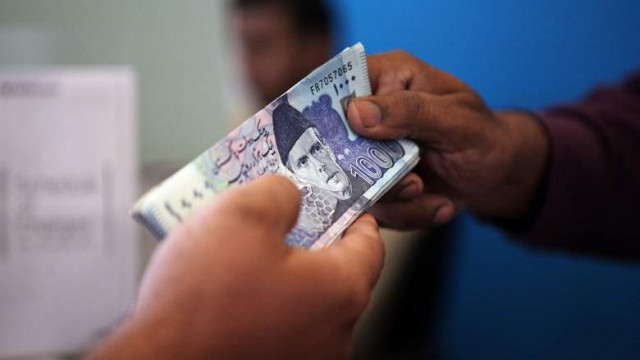Govt officials accused of taking billions from auto sector
Ministry of Industries additional secretary refutes corruption charges

An Reuters file photo.
The accusations were made in a meeting of the National Assembly Standing Committee on Industries and Production, presided over by Sajid Hussain Turi on Monday.
Ministry of Industries and Production Additional Secretary Captain (Retired) Sher Alam Mahsud refuted the corruption charges, saying “I have heard about briefcases but never saw them with own eyes. I do not think anybody is engaged in corruption.”
On the occasion, Adviser to Prime Minister on Industries and Production Abdul Razak Dawood and Industries Secretary Afzal Latif were not present in the meeting Chief executive officer of the EDB said the main role of the EDB was to encourage investment in the auto sector under the Auto Industry Development Programme (AIDP) 2016-21. As far as quality standards were concerned, he said, other bodies like Pakistan Standard Quality Control Authority (PSQCA) dealt with such matters.
The EDB, in its written reply on the use of air bags and anti-lock braking system in vehicles, said the organisation did not have the mandate to regulate and monitor vehicle quality, standards, road worthiness, pricing, etc. However, under the AIDP, the EDB was processing Pakistan’s case to become a member of the Working Party (WP)-29. The regulation will ensure compliance by the local manufacturers with certain regulations.
According to the EDB, the car manufacturers were reportedly following manufacturing standards of their principals. The engines of cars are mostly Euro-II compliant as the petrol available in Pakistan is of Euro-II standard.
MNA Ali Gohar Khan said Pakistan’s car assemblers did not meet international standards, adding that there was a massive difference between interiors of imported five-year-old used cars and newly assembled Pakistani cars.
He said, “There are mechanical problems in Honda, which the company is aware of. If a Pakistani invests Rs3 million or Rs4 million to buy a car, he does not have any other choice due to monopoly of three Japanese car companies.”
He further added that at the same time assemblers are earning billions of rupees in profits per annum. He pointed out that prices of cars were going up and stressed that at least standards of locally assembled and imported cars should be the same.
“Officials of the industries ministry/EDB have been swallowing billions of rupees for years. Had the officials been honest, the situation we are facing today would have been different and things would have improved,” he remarked. The additional secretary said courts could determine who was corrupt and who was not and the ministry could not do it. He said he formulated the auto policy but he had no knowledge who was following the standards as it was the domain of another organisation.
“Whatever is related to automobile should be with the EDB and the industries ministry is recommending a project for inclusion in the budget, which is meant to establish a laboratory to test the standards of auto parts and accessories,” he said. The additional secretary suggested that a special meeting should be convened on the auto sector in which the EDB could give a presentation.
Indus Motor Company representative Babar Khan told the committee that the main reason for the increase in car prices was the imposition of 7.5% additional customs duty in addition to the excise duty on car dealers ranging from 2.5-7%.
He emphasised that Indus Motor met the international standards as airbags had been fitted in cars and WP-29 standards were being followed. MNA Rana Ishaq Khan asked about the impact on the sale of cars after imposition of new taxes, to which Babar Khan replied that there had been a decline of 60%, adding that some carmakers were operating at 40-45% production capacity. When told that people were unable to purchase expensive cars, Babar Khan told the committee that 40% of the total price of a car went to the government in the form of taxes. He argued that if the auto industry was bribing the government officials, the additional secretary would not have been so harsh with the industry. He invited committee members to visit the Indus Motor plant and see how the company was following international standards.
Committee members also raised questions over the quality of commodities being sold in Utility Stores Corporation (USC) and the closure of some USC outlets.
Committee Chairman Turi suggested that USC should sell flour to consumers at reduced prices as the country was facing a wheat crisis.
Published in The Express Tribune, January 21st, 2020.
Like Business on Facebook, follow @TribuneBiz on Twitter to stay informed and join in the conversation.




1733130350-0/Untitled-design-(76)1733130350-0-208x130.webp)













COMMENTS
Comments are moderated and generally will be posted if they are on-topic and not abusive.
For more information, please see our Comments FAQ